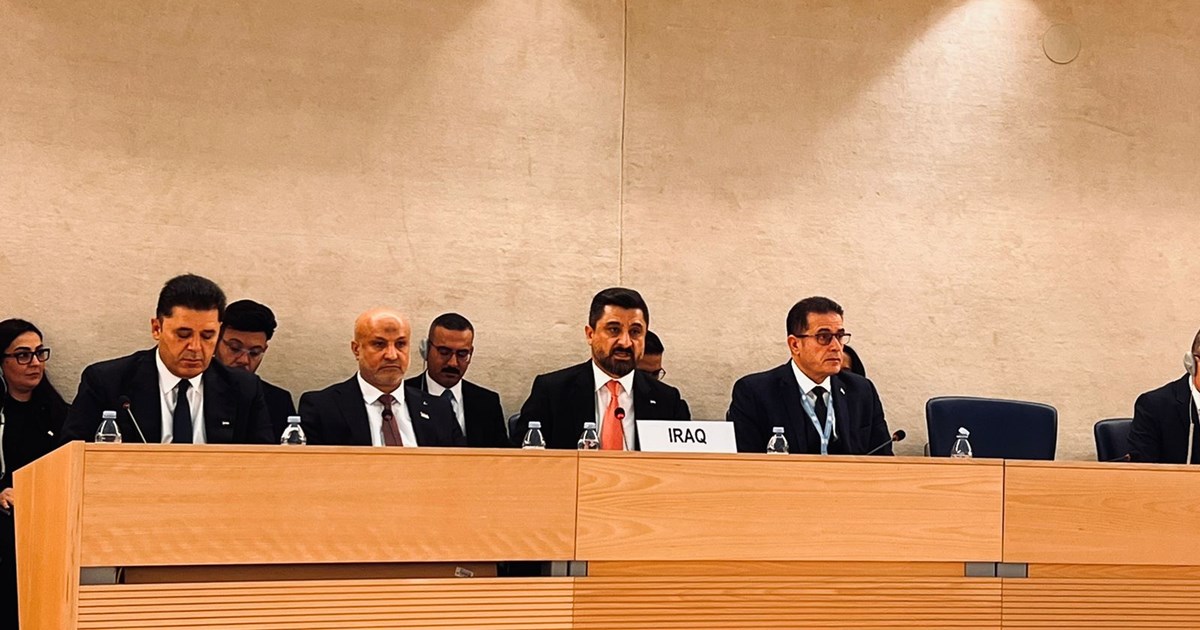KRG Addresses 48th Human Rights Council Session

On Monday, 27 January 2025, during the opening of the 48th session of the Universal Periodic Review (UPR) at the United Nations headquarters in Geneva, Dindar Zebari, the Kurdistan Regional Government's (KRG) Coordinator for International Advocacy, reaffirmed the KRG's commitment to implementing UPR recommendations. He outlined the adoption of laws, guidelines, and practical measures as part of these efforts.
In his speech, Zebari highlighted the KRG’s Human Rights Plan for 2021–2025, approved by the KRG's Council of Ministers in September 2021. The plan was developed in collaboration with the judiciary, UN agencies and international civil society organisations. Since its adoption, ten measures have been introduced to guide long-term policies. Zebari reported that 75% of the recommendations focusing on protecting ethnic and religious minorities, eliminating discrimination, and combating hate speech have been implemented. Additionally, several regulations and guidelines have been enacted and 2,100 religious leaders have been honoured for promoting coexistence and rejecting hatred.
Regarding efforts to recognise the crimes of the so-called Islamic State (ISIS) as genocide and prosecute perpetrators, Zebari stated that 1,456 individuals have been tried on terrorism charges and 689 on espionage charges over the past three years. In partnership with the UN Investigative Team to Promote Accountability for Crimes Committed by Da'esh (UNITAD), over 42,000 files (408,540 pages) documenting ISIS crimes have been digitised. Furthermore, 3,580 individuals have been rescued and are currently receiving financial support from the KRG.
Addressing the issue of torture, Zebari revealed that 32 cases have been referred to courts, and 31 individuals prosecuted for violent practices. To combat overcrowding in correctional facilities, the KRG is constructing four new facilities for adults, children, and women. Inmates are engaged in rehabilitation efforts, with 344 employed, 3,665 participating in workshops, and over 40,000 health referrals provided.
On transparency and anti-corruption, Zebari reported that 50% of the UPR’s anti-corruption recommendations have been implemented. The 2024 Integrity Commission report documented 573 registered cases, with 223 referred to courts, and 1,047 are currently under investigation, with 97 individuals sanctioned. Additionally, the National Anti-Corruption Strategy is actively being implemented.
In safeguarding the rights of children, workers, and individuals with disabilities, Zebari underscored the implementation of a robust child protection policy to shield children from violence and abuse. In the labour sector, 34 committees have conducted 22,651 inspections to enforce standards. The KRG has also created over 100,000 job opportunities, mandating that at least 75% of workers in any project be local.
To support individuals with disabilities, the KRG has introduced smart cards to streamline access to services including 3% reserved for people with disabilities. In 2024, the government also established new mental health facilities to provide treatment and rehabilitation for women with mental health disorders. The Kurdistan Region is hosting 1,009,788 refugees, offering housing, healthcare, and education. For the 2023-2024 academic year, 36,300 refugee students are enrolled in educational institutions. Zebari acknowledged the administrative and financial challenges in implementing some of the recommendations.
Finally, he emphasised that the successful implementation of previous UPR recommendations has significantly advanced good governance principles.
